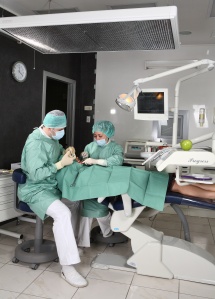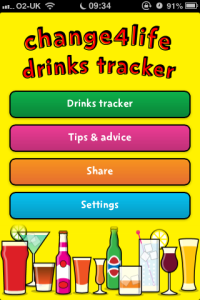Last week, the Department of Health (DoH) announced an additional 29 practices to join the existing 70 practices for the new contract pilot scheme.
The reason for adding more practices to the scheme is to test one of the biggest changes of the new contact – how dentists are paid. Previously, this was based on the number of courses of treatments, compared with the new proposals which are based on dentists being paid for the health results they produce and the number of patients they see.
The need for this change came from criticisms of the current system, where dentists have been accused of focusing on hitting targets as opposed to the oral health of their patients. The new contract hopes to see patients as the core focus, as pressure for reaching targets is lifted. A focus on preventative dentistry was also pushed by the NHS, a main aim of the new contract is to help improve patients oral care through regular check-ups and preventative education.
The traffic light system will also be tested by the new practices, whereby patients are given ratings of green, amber or red depending on the health of their mouths. Dentists will then advise on how patients can improve their oral health relevant to their rating.
Barry Cockcroft, chief dental officer for England, said: ‘I am delighted to welcome the new practices to the pilot scheme and know they will continue with the excellent work which has been carried out so far.
‘We were inundated with applications and choosing the shortlist was very difficult but we were keen to make sure they represent a really broad spectrum of the profession. It is evidence of how positively the pilot programme has been received.
‘We are now committed to making sure the pilots form the ground work for the development of a robust new dental contract that is fully tested and fit for the future.’
Let us know your thoughts about the new dental contract and pilots by commenting or tweeting @stockdalemartin.
See below the shortlist of new practices.
The shortlisted practices
|
Practice name |
Town |
County |
|
St Michael’s Dental Practice |
Wakefield | West Yorks |
|
Daventry Dental Practice |
Daventry | Northants |
|
Eston Dental Practice |
Middlesbrough | Cleveland |
|
Skipton Road Dental Surgery |
Colne | Lancashire |
|
Breeze Dental |
Sunderland | Tyne & Wear |
|
Church Street Dental Surgery |
Hull | East Yorkshire |
|
Noah’s Ark Dental Surgery |
Fowey | Cornwall |
|
St Georges Dental Practice |
Brighton | East Sussex |
|
Richmond Dental Care |
Sheffield | South Yorkshire |
|
Inglewood House |
Whitefield | Manchester |
|
Colney Hatch Dental Practice LTD |
Muswell Hill | London |
|
A H Trueman Ltd |
Ipswich | Suffolk |
|
Basildon Dental Practice |
Basildon | Essex |
|
Tuckton Dental Centre IDH |
Bournemouth | Dorset |
|
ADP – Avonmouth |
Bristol | Avon |
|
Shrewsbury Dental Centre (IDH) |
Shrewsbury | Shropshire |
|
Easton Dental Practice |
Bristol | Bristol |
|
Pittar Chambers Dental Practice |
Exeter | Devon |
|
Oasis Dental Care |
Bognor Regis | West Sussex |
|
Purity |
Dudley | West Midlands |
|
Minto Road Dental Care |
Sheffield | South Yorkshire |
|
Carillon Dental |
Loughborough | Leicestershire |
|
Wisdom Dental Clinic |
Chesterfield | Derbyshire |
|
The Dentists at Watling Street Road |
Preston | Lancashire |
|
St James Dental Practice |
Winchester | Hampshire |
|
Yeading Dental Care |
Hayes | Middlesex |
|
Chadwell Dental Practice |
Grays | Essex |
|
Summerstown Dental Practice |
London | London |
|
Hendon Dental Practice |
Hendon | London |









